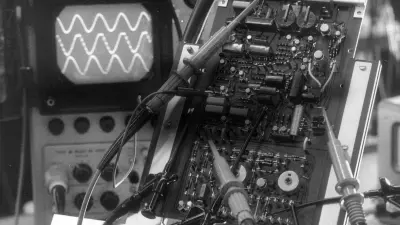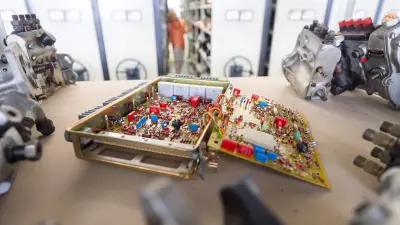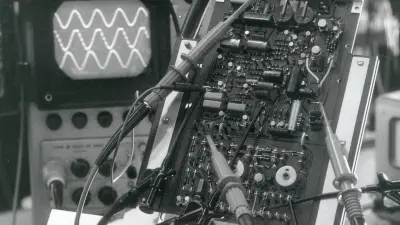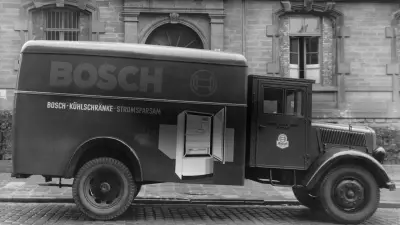A bet on the future — electronics

When Bosch embarked upon manufacturing complex electronic systems in the mid-1960s, it was taking a risk.
The market prospects were hardly predictable, customers from the automotive industry were undecided, and the disastrous experiences of U.S. electronics manufacturers were hardly encouraging.
Despite the scenario, Bosch dared this venture in the conviction that the decision would prove right in the long term. The first researchers still worked very ad hoc in modified stores or apartments near the center of Stuttgart. To start with, they examined the basic principles for uses in automobiles. With its growing knowledge about the necessary technical conditions for using electronics in the harsh conditions encountered in automobiles and how they might function faultlessly for a car’s entire life, Bosch built up the associates, capacities, and infrastructure required for developing and testing such products and worked toward smooth manufacturing processes in high volumes.


Initially, worrying fault rates in pre-production of up to 70 percent cast doubts on the feasibility of automotive electronics. But the company was able to solve the problems, even if this called for great patience.
As a result, Bosch is a leader in electronics nowadays, whereas it would have been a far smaller company — or perhaps even have disappeared completely from the market — without the courage to push on with this new line of business despite the doubts and reservations.
Author: Dietrich Kuhlgatz



